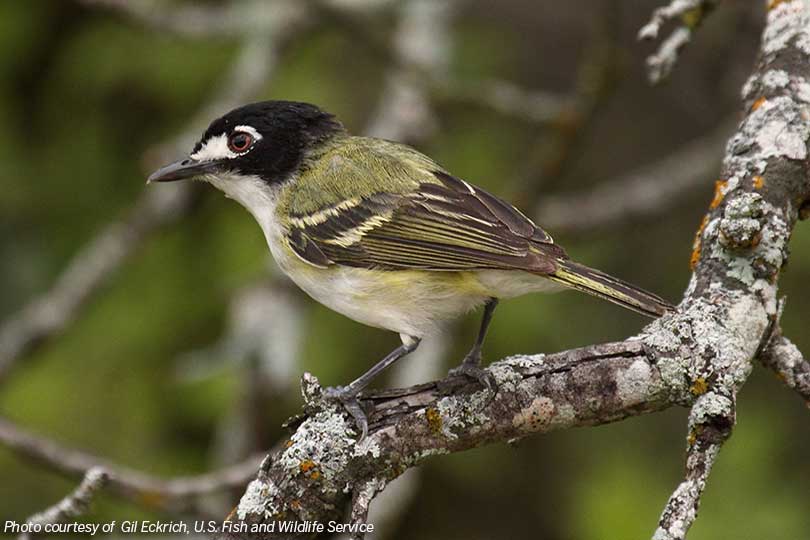The U.S. Fish and Wildlife Service (USFWS) has proposed to delist the black-capped vireo from the federal Endangered Species Act due to recovery, a move Texas Farm Bureau (TFB) said is great news for Texas landowners.
The decision to delist the black-capped vireo is in response to a 2012 petition by TFB and other private rights groups asking that the songbird be down listed. USFWS said its analysis of the best available science indicates the primary known threats to the black-capped vireo—habitat loss and brown-headed cowbird parasitism—have been reduced or adequately managed and populations are expected to be viable in the future.
As such, the vireo no longer meets the definition of a threatened or endangered species under the Endangered Species Act.
“Yes, it is great news. We’re satisfied that U.S. Fish and Wildlife has taken a look at the true numbers of the birds,” said Gene Richardson, TFB director of Commodity and Regulatory Activities. “It’s a win for landowners and a win for the species and the recovery of the black-capped vireo.”
The songbird breeds only in Texas, Oklahoma and northernmost Mexico.
USFWS said only about 350 birds were known to survive when the black-capped vireo was listed under the Endangered Species Act in 1987. The agency said there are now more than 5,200 known birds and more than 14,000 estimated across their breeding range.
USFWS is accepting comments on the proposed delisting until Feb. 13, 2017.
If the vireo is delisted, the agency would continue to work with partners to monitor its status for a minimum of five years after delisting.

